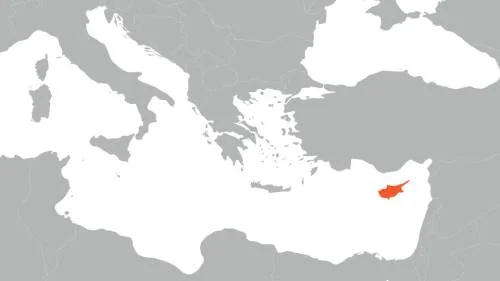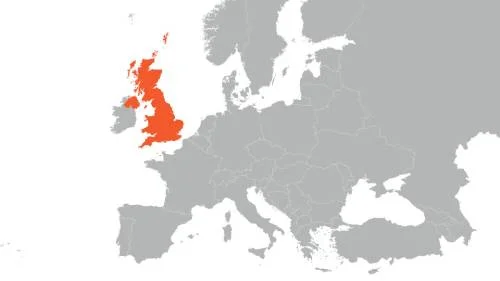Création de société en République Tchèque

 Délai de création : 20 jours
Délai de création : 20 jours
 Sociétés pré-constituées : Oui
Sociétés pré-constituées : Oui
 Comptabilité : Obligatoire
Comptabilité : Obligatoire
 Secrétariat : Obligatoire
Secrétariat : Obligatoire
 Actionnariat anonyme : Oui
Actionnariat anonyme : Oui
 Directeur nominé : Oui
Directeur nominé : Oui
Impot: 19%
Présentation de la République Tchèque
La République Tchèque existe officiellement depuis 1969, elle est issue d’une histoire complexe vieille de plusieurs siècles. Le pays accède à l’indépendance totale 24 ans plus tard, en 1993, lorsqu’il se sépare de la Slovaquie, faisant disparaître l’Etat de Tchécoslovaquie. Nation logée au cœur de l’Europe, complétement entourée d’autres pays, elle intègre l’Union Européenne en 2004.
Une place offshore
La République Tchèque ne possède pas la fiscalité la plus attirante d’Europe de l’est mais elle propose aux IDE de nombreux avantages leur permettant de réduire l’imposition sur les personnes et les sociétés. Ces dernières peuvent ainsi bénéficier d’un allégement d’impôt durant les cinq années suivant leur création.
Les différentes formes de sociétés onshores sont :
- la Société à Responsabilité Limitée (SRO)
- la Société par Actions (AS)
- la Société en Nom Collectif
- la Succursale
Les différents types de sociétés en République Tchèque
Il faut 20 jours et 9 procédures pour pouvoir créer une entreprise en République Tchèque.
| Types de société | Capital | Nombre d’associés |
|---|---|---|
| Société à responsabilité privée | 200 000 CZK minimum | 50 associés au maximum, responsabilité limitée aux apports |
| Société à responsabilité limitée publique | 2 000 000 CZK minimum | Aucun minimum ni maximum, mais 1 seul propriétaire, responsabilité limitée au capital |
| Partenariat général | Pas de capital minimum | 2 associés au minimum, responsabilité illimitée |
| Partenariat limité | 5 000 CZK minimum | 2 associés au minimum, 1 actif et 1 passif, responsabilité illimitée pour l’actif, limitée aux apports pour le passif |
Liens :
Registre du Commerce
Ministère de l’Industrie et du Commerce
Les différents taux d’imposition
La taxe qui s’applique sur les sociétés en République Tchèque est de 19% pour tous les revenus et également pour les gains de capitaux. Les revenus d’investissements et des fonds de retraite sont imposés à 5%.
Il est possible de déduire de ses impôts les amortissements des biens, les matériaux et services achetés, les salaires, assurances santé et cotisations sociales, mais également les dons, dépenses de R&D et les pertes fiscales.
La taxe sur la consommation (TVA) est de 21 %, ou de 15 % pour les livres et les produits alimentaires et de santé. L’impôt individuel sur les revenus est fixe (15 %) auquel sont déductibles les cotisations de retraite, les allocations pour handicap, les intérêts sur hypothèques, les assurances vie ou les cadeaux d’entreprise.
La France et la République Tchèque ont signé une convention de non double imposition en 2003.
Liens :
Convention de non double imposition
L’essentiel de la comptabilité
Les Normes de Comptabilité Nationale régissent l’exercice comptable des entreprises et sont établies par le Ministère des Finances et cherchent à se rapprocher de l’International Financial Reporting Standards.
L’année fiscale doit obligatoire être différente de l’année civile ; elle est donc laissée au choix des entreprises, mais doit toutefois s’étendre sur 12 mois. Les comptes des entreprises doivent être rédigés en tchèque, exprimés en CZK et doivent comprendre un bilan, un compte des profits et pertes ainsi qu’une annexe.
Un commissaire aux comptes doit enfin réaliser un audit annuel de la santé financière de l’entreprise.
Liens :
Ministère des Finances
Chambre des Comptables Certifiés
La juridiction en détail
Si l’économie tchèque est l’une des plus puissantes de cette région de l’Europe, sa dépendance vis-à-vis du commerce extérieur et les échanges internationaux ont fait de la crise de 2008 une rude épreuve pour le pays. Il est ainsi entré en récession en 2009, et sa croissance depuis reste faible malgré un léger rebond en 2010. Elle est estimée à 0,8% pour 2013.
Le secteur industriel de la République Tchèque possède une place importante dans l’économie avec 40% du PIB et se concentre notamment sur l’automobile avec la présence de la firme Skoda mais aussi de Toyota et de Peugeot, mais également sur le domaine du textile.
Le tertiaire possède naturellement la place principale dans le développement du pays avec plus de la moitié de la population active, et un secteur touristique en pleine expansion.
Enfin, l’agriculture tchèque est moins influente avec 3% de la population active et une production de betteraves, de pommes de terre, d’orge, de blé et de houblon. Cette branche de l’économie est aujourd’hui très subventionnée.
Le pays est, comme vu plus haut, très ouvert sur l’extérieur et commerce beaucoup avec l’étranger, une activité soutenue par l’intégration dans l’UE. Aujourd’hui, la balance commerciale de la République Tchèque est positive.
Les points forts pour investir :
- main d’œuvre qualifiée et bon marché,
- accès au marché européen,
- monnaie stable,
- banque centrale puissante.
Les désavantages :
- dépendance de la Demande extérieure,
- non adoption de l’Euro,
- paysage politique parfois mouvementé.
Comme de nombreux pays d’Europe de l’est, le gouvernement tchèque a mis en place des mesures pour attirer les investissements étrangers, comme par exemple un programme de non-discrimination des étrangers.










